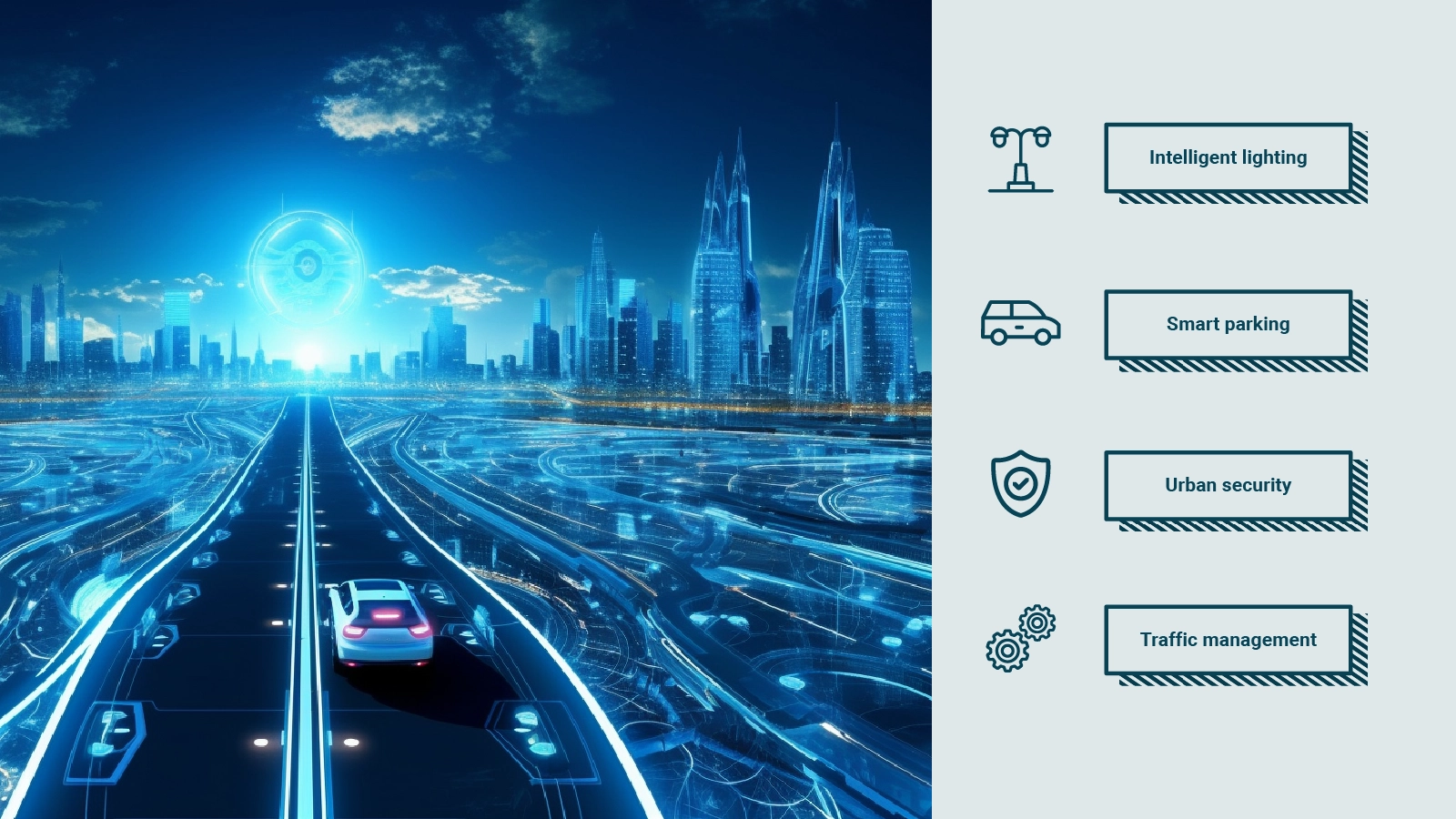From intelligent lighting to smart parking, from urban safety to vehicle and goods traffic management, Smart Cities can bring many benefits to citizens, such as improved safety, better air quality and more efficient public services.
The Internet of Things (IoT) is a key technology for the realisation of the Smart City, as it allows everyday objects to be connected to the Internet, collect and exchange data in real time, and make decisions based on the data collected.

Among the applications of IoT in Smart Cities, one can mention:
Intelligent lighting:
Public lighting systems can be connected to the Internet and controlled remotely, so that energy use can be optimised and light intensity can be adapted to traffic and weather conditions.
Smart parking:
Intelligent parking systems can help to easily find a free parking space and manage parking payments more efficiently.
Urban security:
Internet-connected objects, such as cameras and sensors, can be used to increase security in cities, e.g. for fire detection or traffic monitoring.
Traffic Management:
IoT can be used to monitor vehicle traffic and goods, to obtain information on the location, status and operation of vehicles, and to identify possible problems or congestion.

Applications of IoT in Smart Buildings include:
Lighting control:
Lighting systems can be connected to the Internet and controlled remotely, so that energy use can be optimised and light intensity can be adjusted according to the time of day and the presence of people in the building.
Heating and air-conditioning control:
Heating and air conditioning systems can be connected to the Internet and controlled remotely, so that energy use can be optimised and the temperature can be adjusted according to weather conditions and people's preferences.
Management of water consumption:
Water consumption monitoring systems can help identify leaks and optimise water use.
Waste Management:
Waste collection systems can be connected to the Internet and controlled remotely, so that waste collection and transport can be optimised.